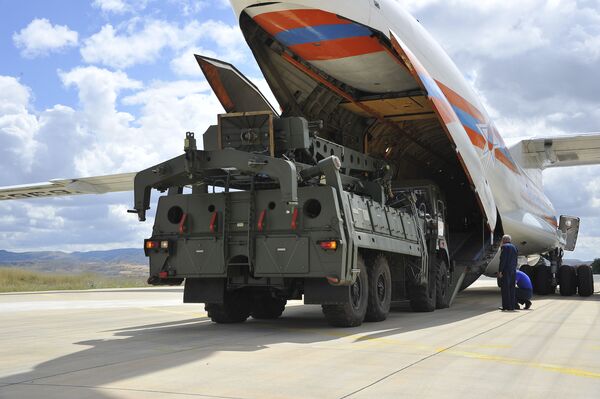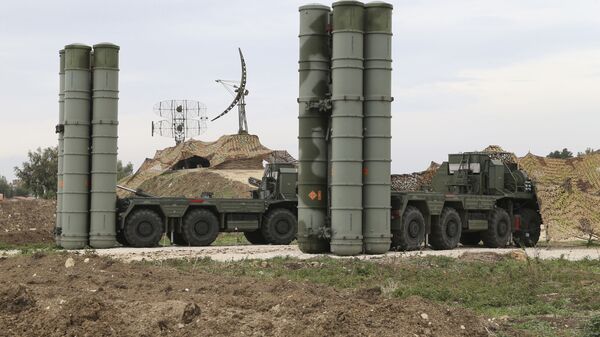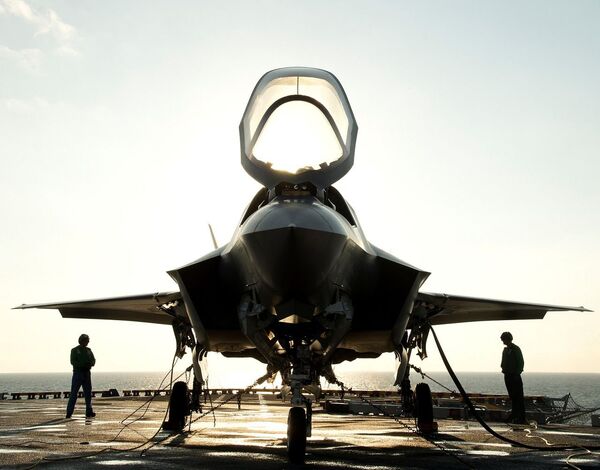Turkey has begun testing the S-400 missile defence systems that it purchased from Russia this summer, the Milliyet daily cited an unnamed source as saying on Monday.
The source added that the Ankara Governorate earlier announced that the military will fly its fighter jets near the Turkish capital to test the S-400's radar systems in the next few days.
“Within the scope of some projects carried out in coordination with the Presidency of Defence Industries, F-16 aircraft and other aircraft belonging to the [Turkish] Air Force will carry out low and high altitude test flights on Monday and Tuesday in the skies of Ankara,” the governorate said.
US Urges Turkey ‘to Destroy’ S-400s
The statement comes after a senior US State Department official called on Turkish authorities to stop using the S-400s, saying that “there is room for Turkey to come back to the table” to get Ankara back into the US’ F-35 stealth fighter programme.
“They know that to make this work they need to either destroy or return or somehow get rid of the S-400," the official told reporters at last week’s briefing.
It was preceded by Turkish Defence Minister Hulusi Akar stating that his country is going to activate and make use of the S-400 air defences.
“The S-400 will be functioning. At the moment, Turkish military personnel are undergoing training on the use of the S-400s. After this is concluded, the planned [use of the S-400s] will start. Do not doubt it,” he pointed out.
Washington, Ankara Lock Horns Over S-400
Earlier this year, Washington announced its decision to suspend Turkey's participation in the international F-35 programme over Ankara's purchase of the S-400s, adding that the country would be completely removed from the project by late March 2020. Under the programme, Turkey ordered more than 100 F-35 fighter jets.
The US claims that the S-400 systems are incompatible with NATO's air defence weapons and may compromise the operations of the F-35 fighter jets. Washington has repeatedly threatened to slap sanctions on Ankara over its purchase of the S-400s.
Despite the US pressure, Turkey refused to reverse its contract with Russia, saying that it was a done deal which is vital for its national defence. Ankara also stressed that the S-400s were not related to the security of NATO, the US, or the F-35 in any way.
Moscow and Ankara signed a loan agreement for the supply of Russian S-400 air defence systems to Turkey in September 2017. Russia completed the first shipment of S-400 components to Turkey in late July 2019.

This was followed by Turkish Foreign Minister Mevlut Cavusoglu saying that he did not rule out Ankara purchasing an additional batch of S-400s if necessary. The country’s President Recep Tayyip Erdogan that the S-400s will be fully operational in the country by April 2020.



